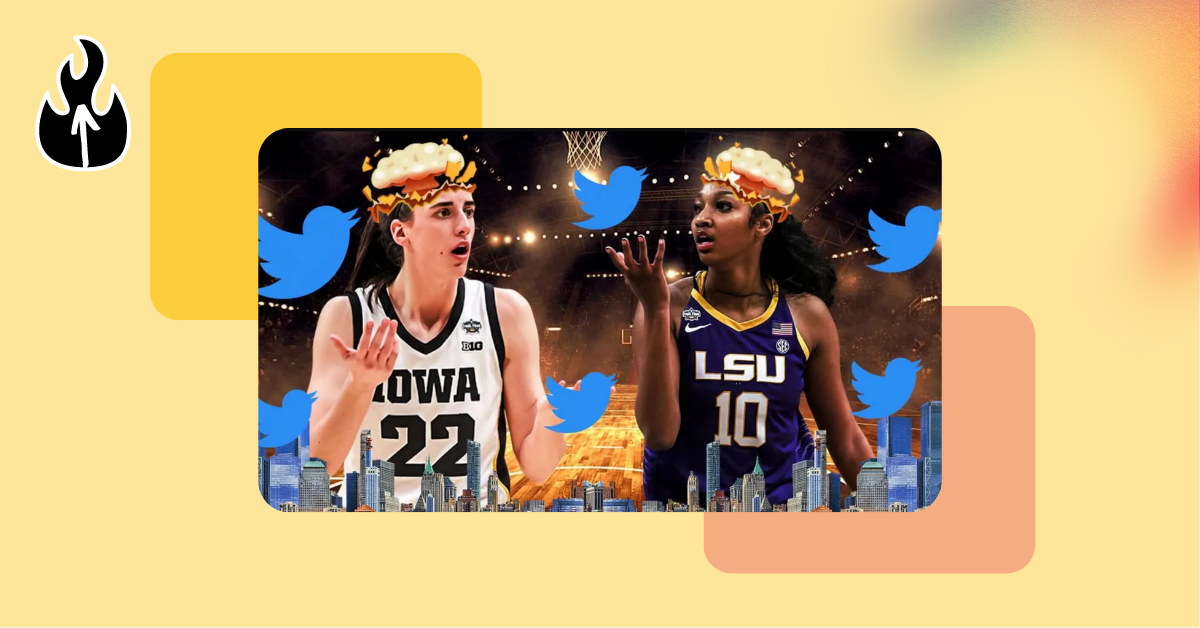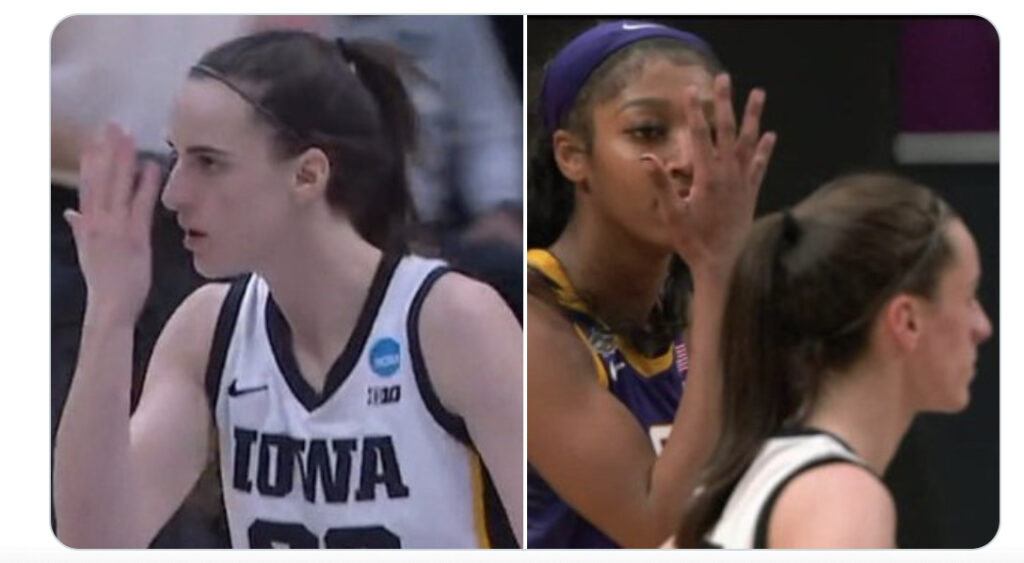
In the recent NCAA Women’s Final Four championship game, LSU’s Angel Reese and Iowa’s Caitlin Clark took center stage not only due to their stellar performances during the tournament, but also for their taunting gestures towards one another. These taunts sparked a heated debate on social media, with commentator Keith Olbermann initially calling Reese a “f—ing idiot” and “classless,” but later apologizing after realizing he was “uninformed.” This incident highlights two long-standing double standards in sports, both concerning the coverage of Black athletes by the media and the disparity in how women and men are perceived on the field or court.
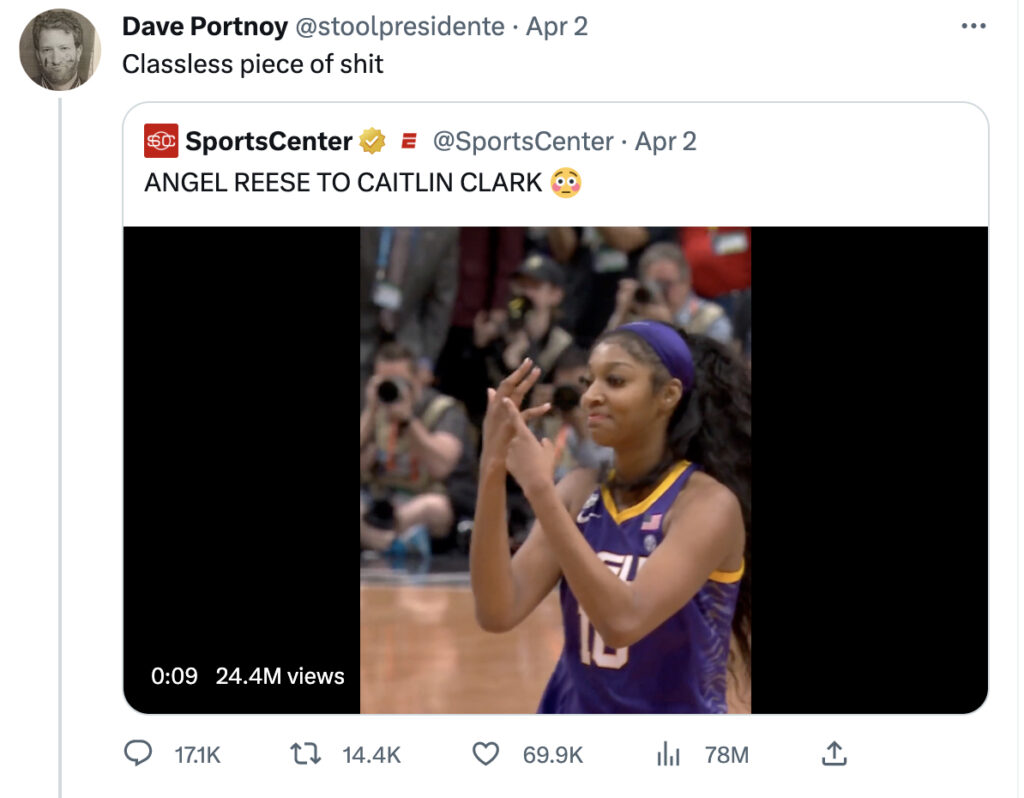
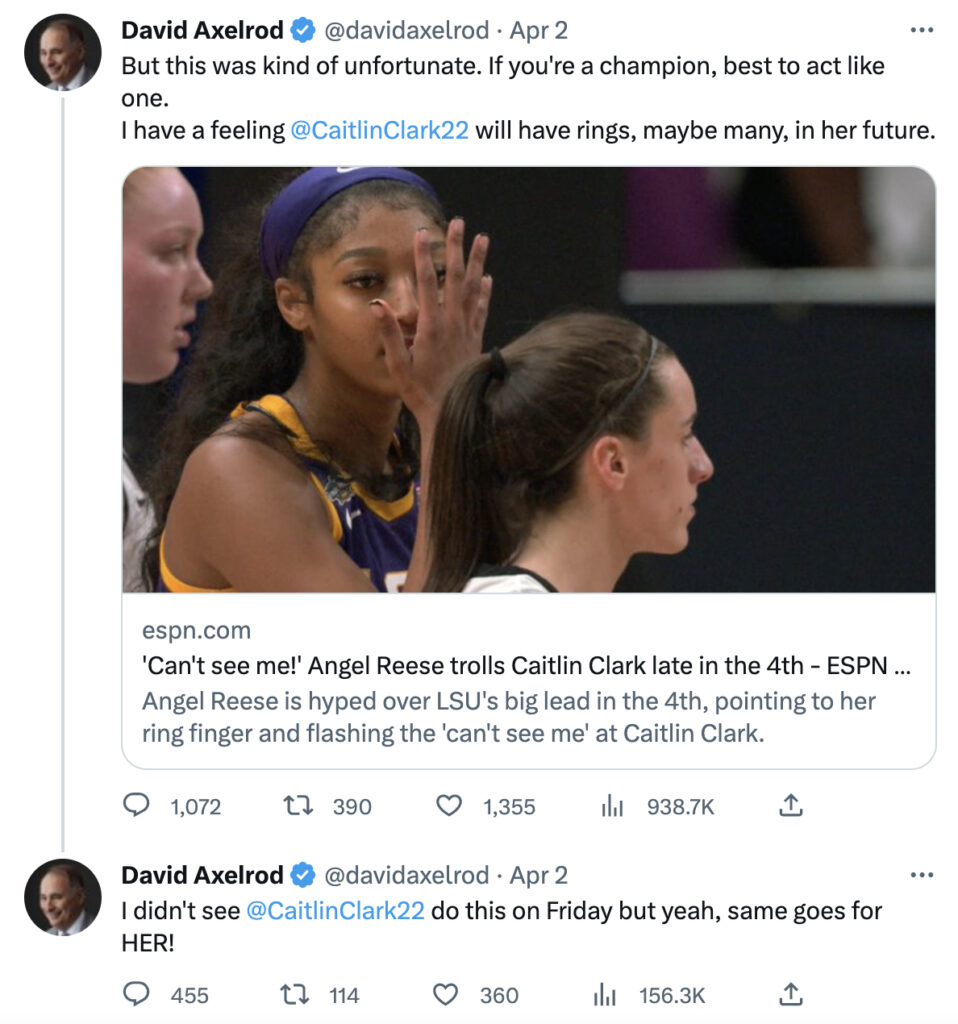
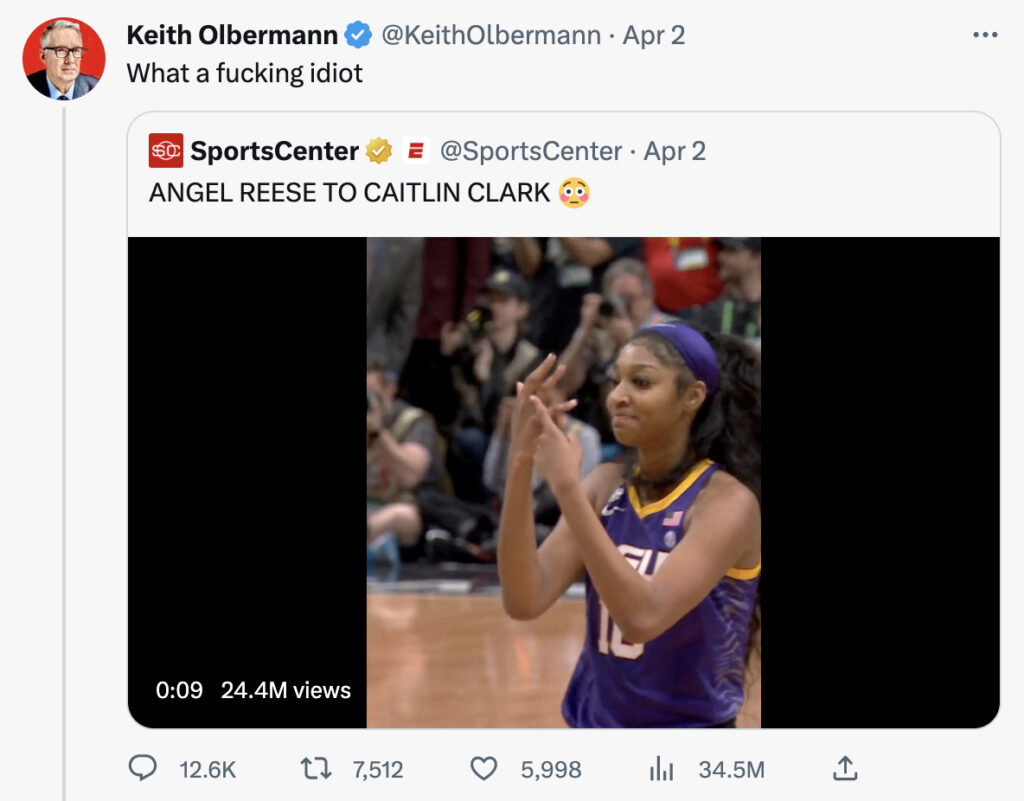
Racial Bias In Media Coverage
A study conducted by Rada, Wulfemeyer, and others (1996/2005), found that Black athletes were more likely to be portrayed negatively in the media compared to their white counterparts. The study analyzed 2,000 stories from four newspapers and found that 43.9% of stories featuring Black athletes had a negative tone, compared to only 23.9% of stories featuring white athletes. Additionally, a journal article by Eastman and Billings (2001), examined racial differences in sports media coverage by analyzing broadcasts of NFL games. They found that white athletes were more likely to be described as hardworking and disciplined, while Black athletes were more likely to be portrayed as physically gifted, but lacking in intelligence and discipline.
Now, trash talk has long been part of competitive sports culture, and as long as it doesn’t cross the line into personal attacks or hate speech, it can be acknowledged as part of the game. However, the difference in reactions to Reese’s and Clark’s taunts exemplifies the racial bias that continues to plague the sports world. Reese, a Black athlete, faced scathing backlash for her taunts, with many men, who happened to be Caucasian, calling her “classless” or a “f–king idiot.” Olbermann even questioned the LSU coaching staff for allowing Reese to behave that way. In contrast, Clark, who is white, faced little criticism for similar behavior. The drastic overreaction underscores a broader racial double standard in sports, where Black athletes are often labeled as “thugs” and “animals” for the same behavior that is praised in white athletes as “passionate” and “fiery.”
The persistence of this stereotype has deep roots. Larry Bird, hailed as the greatest trash talker of all time, was praised for his passion. Tom Brady, known for yelling at teammates and coaches, was seen as scrappy. Hockey fights are considered traditional, and NASCAR brawls are deemed cool and spirited, yet NBA altercations prompt white commentators to question, “Where are the fathers?” Author and college professor David J. Leonard, in his book Playing While White: Privilege and Power on and off the Field, highlighted the discrepancy in how white and Black athletes are perceived in sports culture. He noted that white athletes are often described as scrappy, gritty, and cerebral, while Black athletes are commonly attributed with negative stereotypes.
This is why so many other athletes and personalities, like Shaq, Jalen Rose, and Shannon Sharpe, spoke up for Reese after the incident. It was less about the gesture and more about the vitriolic commentary about Reese, a 20 year old college student, as a person. Many Black athletes have experienced the same double standard themselves. Natasha Cloud, from the Washington Mystics, even took to Twitter asking for allies and “white counterparts who play to step up and say what it is.” Thankfully, a number of allies heeded the call and stepped up, including, Brian Krassenstein and Keith Murphy.
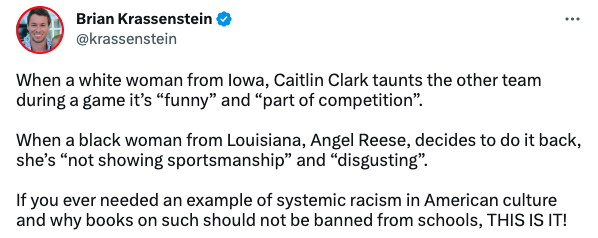

The Gender Double Standard
A gender double standard was also apparent, with women being criticized for trash talk and aggressiveness, however, men are celebrated for their competitive spirit. South Carolina coach Dawn Staley, even addressed the stereotype that her team is “thuggish” because of their physical play, stating, “We’re not bar fighters. We’re not thugs. We’re not monkeys. We’re not street fighters.” These deeply ingrained stereotypes are potent and, unfortunately, refuse to die.
To challenge these biases, it is crucial to recognize and address them within sports culture. All athletes must be held to the same standard, regardless of their race or gender. Commentators with significant platforms and influence, like Keith Olbermann, must be aware of the potential implications and harm of their words and provide fair and balanced commentary. Furthermore, the sports community should strive to create an environment that celebrates diversity and inclusivity. As Reese said, “This is for the girls that look like me.”
The #BrandRewind
As we confront the racial and gender double standards ingrained in sports, it is crucial to take decisive action to change the narrative. Only by doing so can we create a more equitable and inclusive environment for all athletes to compete and thrive. We must commit to treating all players equally, regardless of their race, creed, or gender. By actively challenging these disparities and demanding fair treatment across the board, we can collectively build a sports culture that embraces diversity and champions fairness for all.
About The Author
Barika Phillips Bell is the co-founder of the award winning agency, B3 Media Solutions, a digital analytics, social research, listening (search & social), data visualization, and reporting agency. She has over 15+ years experience within social media and market research on both the brand and agency side.

